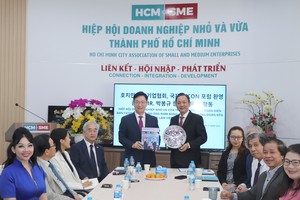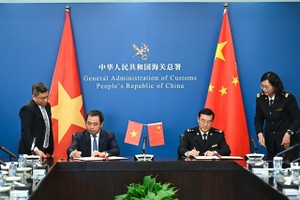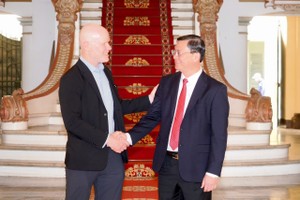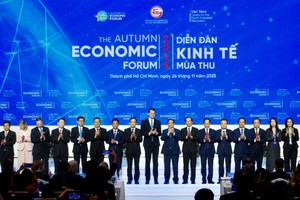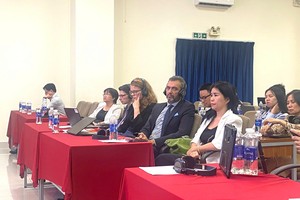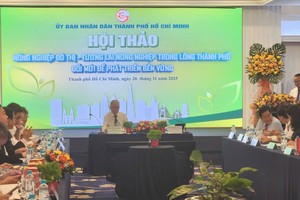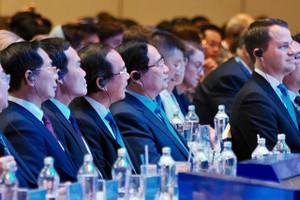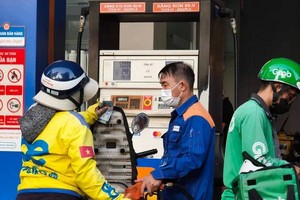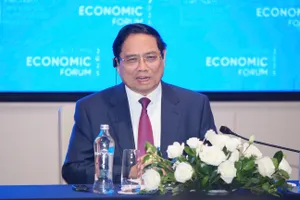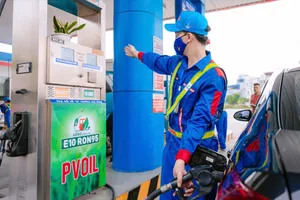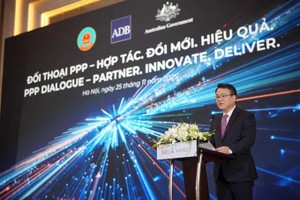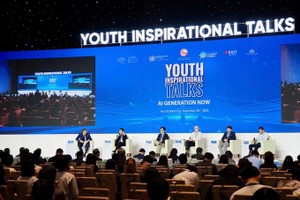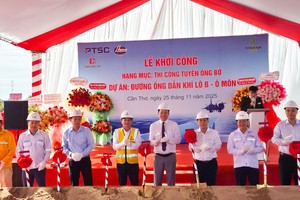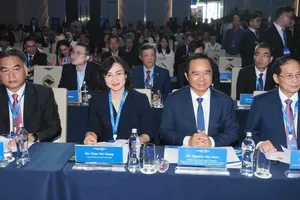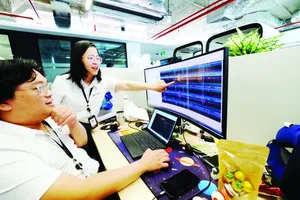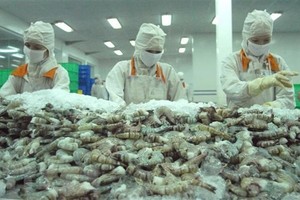Multiple initiatives tabled for discussion

During his meeting with Stephan Mergenthaler, World Economic Forum (WEF)’s Managing Director, Prime Minister Pham Minh Chinh discussed the global economic shift toward green and digital growth models, in which data, automation, and AI are becoming foundational drivers of productivity.
Mr. Stephan Mergenthaler noted that Vietnam is facing a ‘rare opportunity to rise as the region’s new manufacturing hub if it can capitalize on three key pillars, including advanced manufacturing, open data, and a digitally capable workforce. He recommended that Vietnam deepen its participation in the Global Lighthouse Network, comprising more than 200 leading Industry 4.0 factories, to access over 1,000 models applying AI, robotics, sensors, and big data in production. Vietnam could focus on its strengths in electronics, textiles, and agro-food processing to develop ‘model factories’ that would serve as anchors for scaling smart manufacturing to global standards.
During Prime Minister Pham Minh Chinh’s meeting with Malaysia’s Minister of Science, Technology, and Innovation Chang Lih Kang, the two sides held in-depth discussions on new energy, data centers, and high technology.
Minister Chang Lih Kang presented Malaysia’s green hydrogen program, aimed at reducing costs to create new growth drivers, and proposed comprehensive cooperation with Vietnam across the entire green hydrogen value chain, from research and manufacturing to developing refueling infrastructure in industrial zones.
According to Minister Chang Lih Kang, ASEAN faces a severe shortage of data infrastructure, presenting an opportunity for Vietnam and Malaysia to jointly advance an ‘ASEAN Data Corridor,’ harmonizing data center operating standards and clean power supply mechanisms. He added that the two countries could expand dual-track training programs with increased hands-on practice in factories and R&D centers, as well as broaden joint research in AI, blockchain, robotics, and semiconductors.
During his meeting with Cambodia’s Minister of Industry, Science, Technology, and Innovation Hem Vanndy, Prime Minister Pham Minh Chinh reaffirmed that Vietnam values its friendly neighborly relations with Cambodia and hopes to advance science and technology as a new driver of growth for both countries.
Minister Hem Vanndy proposed developing shared innovation infrastructure connected to research institutes, universities, businesses, and technology parks, while expanding cooperation in renewable energy, sustainable digital infrastructure, clean industries, and cross-border investment.
In these meetings, Prime Minister Pham Minh Chinh emphasized that Vietnam supports open cooperation in the governance of emerging technologies, data infrastructure, and advanced manufacturing, stressing that ‘smart manufacturing, sustainable development, and green transition must go hand in hand.’ Vietnam is ready to cooperate in developing data centers, clean energy, and AI and in improving workforce quality. He also specifically asked the Malaysian government to support Vietnam in developing Halal-certified products and to jointly strengthen food security, an area where Vietnam has strong agricultural advantages.
A school-based learning and paid on-the-job training model

Alongside Prime Minister Pham Minh Chinh’s engagements, Deputy Prime Minister Bui Thanh Son held meetings with numerous ministerial delegations, leaders of international organizations, and major global corporations. A common theme emerging from these discussions is that Vietnam is increasingly regarded as a potential hub for smart manufacturing, AI, clean energy, and digital infrastructure in the region.
From a global coordination perspective, Stephan Mergenthaler, World Economic Forum (WEF)’s Managing Director, proposed positioning Ho Chi Minh City as an ‘open laboratory’ for piloting AI models in industry, logistics, finance, and public services before scaling them nationwide.
From the business standpoint, Jonathan Choi, Chairman of Sunwah Group, recommended that Vietnam adopt tailored policies for data centers, AI, and green vehicles. He emphasized that data centers require dedicated ‘power capacity zones’ linked to clean energy sources. He also called for tax incentives, land support, and streamlined procedures to enhance competitiveness and attract investment.
A dual-track training model, combining classroom learning with paid practical training in factories, was proposed to help narrow the skills gap.
On robotics and physical AI technologies, Mr. Daniel Theobald, co-founder of MassRobotics and Founder & Chief Innovation Officer of Vecna Robotics (USA), proposed that Vietnam make systematic investments in digital simulation, a technology that allows thousands of production and urban models to be tested virtually. He recommended establishing a center for simulation and robotics in Ho Chi Minh City to serve as a foundation for nationwide expansion.
Also speaking at the dialogue, U.S. Ambassador to Vietnam Marc Knapper highlighted three pillars for potential cooperation with Vietnam, including energy and data infrastructure; AI and the digital economy; and cybersecurity and secure digital infrastructure. He noted that U.S. companies are actively expanding investments in data centers, renewable energy, submarine cables, and energy storage and are ready to support Vietnam in planning energy infrastructure for the digital economy, as well as training human resources in AI and cybersecurity in the near future.
Acknowledging the proposals, Deputy Prime Minister Bui Thanh Son affirmed that Vietnam values cooperation with businesses and international organizations and will continue to improve its institutional framework, develop digital and clean energy infrastructure, and support investors. The series of suggestions from delegates reflects strong confidence in Vietnam’s green and digital prospects, opening up broad opportunities for cooperation in the coming decade.
According to Chairman of the Ho Chi Minh City People’s Committee, Nguyen Van Duoc, the city’s central goal in the new phase is to escape the ‘middle-income trap’ through green and digital transformation. This lays the foundation for developing Ho Chi Minh City International Financial Center (IFC), one of the strategic drivers assigned by the government.
The city highly values the initiatives, analyses, and policy proposals presented by international organizations, experts, and businesses at the 2025 Autumn Economic Forum, considering them a ‘valuable input data source’ for refining its development model in the coming period. Ho Chi Minh City also appreciates the attention of global financial institutions, technology corporations, and partners who are exploring or expanding investments in the city, particularly in finance, green energy, AI, data, and smart urban development.
The policies and proposals raised by businesses and experts at the forum serve as a foundation for Ho Chi Minh City to adopt and implement reforms, from improving institutional frameworks and upgrading digital and logistics infrastructure to enhancing the investment environment. The city is committed to maintaining macroeconomic stability and political and social security, creating a safe and transparent environment for investors.
Ho Chi Minh City authorities emphasize that they listen to and understand businesses and are ready to promptly resolve bottlenecks within their authority while proactively recommending solutions to the central government for issues beyond their jurisdiction. The city pledges to accompany businesses every step of the way.
Ho Chi Minh City is ready to become a pilot for new models and policies, ranging from sandbox technology and financial or data pilots to public-private partnerships in innovation. The city hopes that global corporations and domestic and international businesses will choose Ho Chi Minh City as a ‘preferred destination’ for strategic projects, particularly in the green-digital, finance, logistics, and science and technology sectors. The municipal authorities will actively adopt and implement these insights in upcoming action programs.
